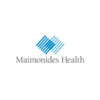
Early PP Monitored by EIT in Patients With ARDS
Acute Respiratory Distress SyndromeAcute Respiratory Distress Syndrome (ARDS) is a syndrome characterized by respiratory distress and refractory hypoxemia caused by pulmonary and extra-pulmonary factors. Despite improvements in diagnosis and treatment in recent years, the mortality rate of severe ARDS is still around 40%. The distribution of lung lesions in ARDS patients is significantly gravity-dependent. Even with lung-protective ventilation strategies, tidal volume is concentrated in the ventral lung region, leading to ventilator-associated lung injury. Prone position ventilation can increase ventilation to the dorsal lung tissue and improve the ventilation-perfusion ratio, thus improving oxygenation. During prone position ventilation in ARDS patients, lung-protective ventilation strategies should be maintained, but with different respiratory mechanics from the supine position, requiring adjustment of ventilator parameters. Electrical Impedance Tomography (EIT) technology can be used for bedside monitoring of mechanically ventilated patients, providing real-time feedback on the patient's ventilation status and having great potential for clinical applications. Investigators believes that EIT monitoring during prone position ventilation in ARDS patients can individualize lung-protective ventilation strategies, minimize alveolar overdistension and collapse, improve the weaning success rate of invasive ventilation, and ultimately improve patient prognosis.

Efficacy and Safety of Anakinra in Acute Respiratory Distress Syndrome
Acute Respiratory Distress SyndromeAcute Respiratory Distress Syndrome (ARDS) is a life-threatening condition characterized by acute respiratory failure with hypoxemia, noncardiogenic or non-fluid overload pulmonary edema, bilateral diffuse opacities on chest radiograph in the presence of a predisposing factor. In ARDS there is activation of the inflammatory cascade which is very intense and persistent in the severe types. It was highlighted that the inflammatory cytokines in patients with ARDS or sepsis is similar to that observed in COVID-19 positive patients. Emerging therapies include immunomodulation and the administration of mesenchymal stem cells for the modulation of lung repair through the release of cytokines and growth factors that modulate the local inflammatory response. Regardless of the cause of ARDS, the severity of the inflammatory state and fibroproliferative evolution have been shown to be independent predictors of survival and ventilator dependence. Patients suffering from severe forms of ARDS in fact require prolonged mechanical ventilation, which exposes them to ventilator-associated pneumonia (VAP) and the onset of multiorgan insufficiency. The hyperinflammatory state underlying ARDS predisposes to pulmonary fibroproliferation, which in turn increases susceptibility to ventilator dependence and increases the risk of MOF and death. For this reason, the rationale in the use of anakinra is to limit the inflammatory process of ARDS as early as possible, avoiding the progression of lung damage.

Pulsed Electromagnetic Fields (PEMFS) in Complex Regional Pain Syndrome Type i (CRPS-I) of the Foot...
PainJoint3 moreThe investigators hypothesize that the association of I-ONE® therapy with standard rehabilitation treatment can optimize the clinical and functional recovery of patients with pulsed electromagnetic fields (PEMFs) (I-ONE® therapy) of the foot or ankle.

A Study of BPN14770 in Male Adults (Aged 18 to 45) With Fragile X Syndrome
Fragile X SyndromeA Randomized, Double-blind, Placebo-controlled, Parallel Group Study of BPN14770 in Male Adults (Aged 18 to 45) with Fragile X Syndrome

Neurostimulation to Improve NOWS Outcomes
Neonatal Opioid Withdrawal SyndromeNeonatal Abstinence SyndromeThe objective of this study is to determine if tAN therapy can reduce the median number of days of oral morphine administered to an infant after start of treatment.

Do Biomarkers Predict Response to a Pediatric Chronic Pain Symptom Management Program?
Irritable Bowel SyndromeFunctional Abdominal Pain Syndrome4 moreThe purpose of this study is find out if we can use simple tests (biomarkers) to tell us if a specific child would benefit most from CBT or from the low FODMAPs diet.

Randomized Study of Conditioning of Fludarabine Combined With Single or Dual Alkylating Agents in...
Acute Myeloid LeukemiaMyelodysplastic SyndromesFludarabine and busulfan becomes standard conditioning regimen for adult patients with acute myeloid leukemia (AML) or myelodysplasia syndrome (MDS). The overall relapse rate is 15~20%. More recently, the investigators demonstrated that conditioning regimen with dual alkylating agents consistent of fludarabine, busulfan and melphalan achieved a low incidence of relapse (<10%). This multiple-center randomize study is aim to compare the transplantation outcome in adult patients with AML/MDS undergoing allo-HSCT with conditioning regimen of Flu-Bu4 vs. FLu-Bu-Mel.

Impact of Bright Light Therapy on Prader-Willi Syndrome
Prader-Willi SyndromeExcessive Daytime Sleepiness4 moreThis is a placebo controlled clinical trial to assess the utility of light therapy as a sufficient treatment for excessive daytime sleepiness in patients with Prader-Willi Syndrome

Exercise Therapy for Femoroacetabular Impingement Syndrome
Femoroacetabular Impingement SyndromeThe aim of the clinical trial is to investigate the characteristics of patients, who respond vs. not respond to exercise therapy for the nonsurgical management of femoroacetabular impingement syndrome (FAIS).

Repurposed Drugs to Improve Haematological Responses in Myelodysplastic Syndromes
Myelodysplastic Syndromes (MDS)Over 7,000 people in the UK are living with Myelodysplastic Syndromes (MDS). Approximately 1,600 of these individuals (23%) die each year from their disease. MDS affects the production of blood cells by the bone marrow, causing chronic fatigue, bleeding, and recurrent infections. Many patients die because their disease transforms into acute myeloid leukaemia (AML) an even more aggressive blood cancer. The general outlook for AML is poor, but when AML arises from MDS it is worse. REPAIR-MDS seeks to repurpose existing drugs in order to dramatically improve the outlook, health and quality of life of people with MDS. The trial treatments aim to improve the production of healthy functioning blood and immune cells that will fight against infections and boost the immune system's action against the MDS clone. REPAIR-MDS design is a is a multicentre open label phase 2 randomised controlled trial which will compare VBaP (sodium valproate, bezafibrate, medroxyprogesterone) with danazol in patients who have received either Erythropoiesis Stimulating Agents (ESAs) and lost response, not responded to ESAs or are deemed unlikely to respond to ESAs.
